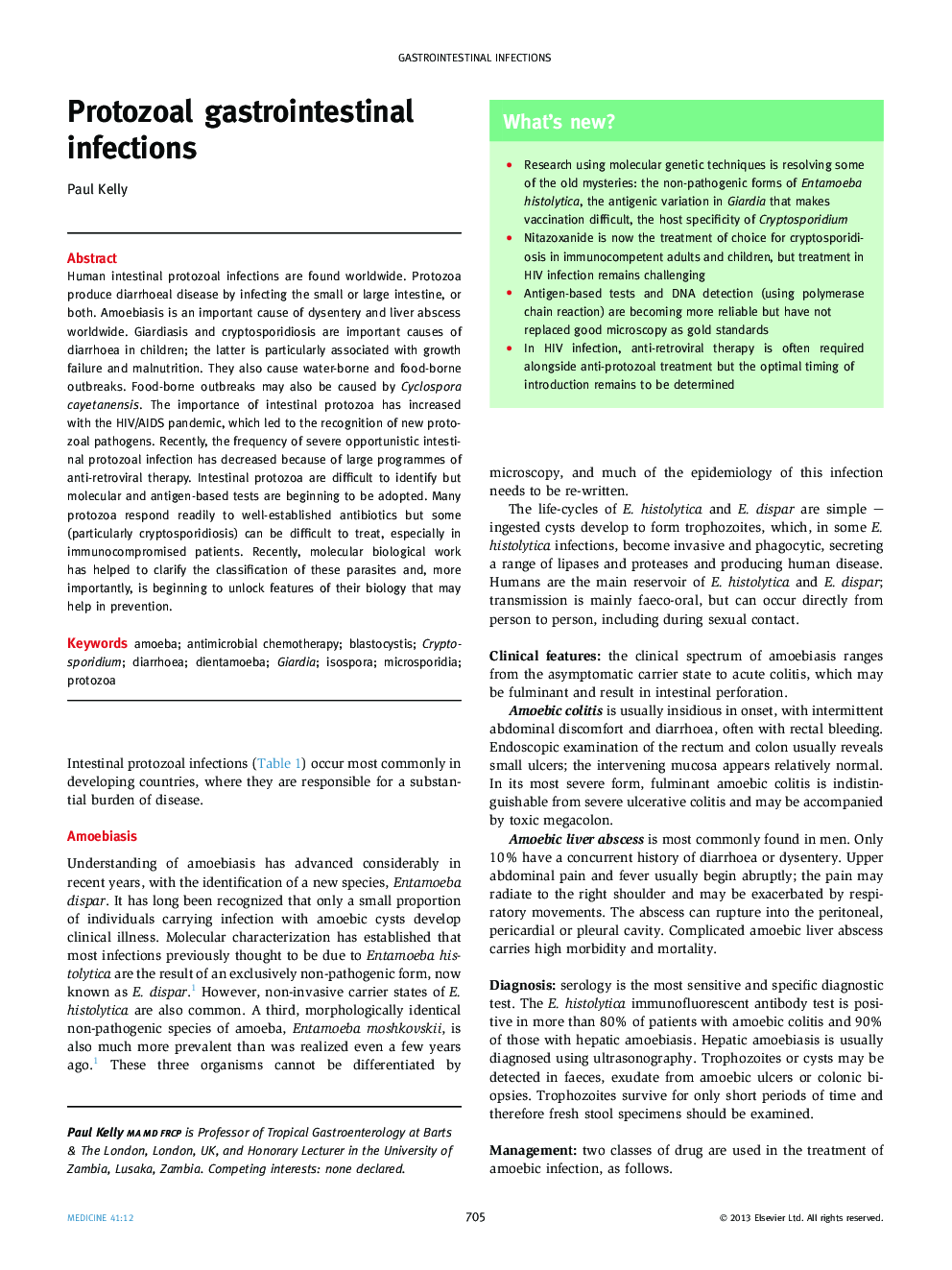| Article ID | Journal | Published Year | Pages | File Type |
|---|---|---|---|---|
| 3806680 | Medicine | 2013 | 4 Pages |
Human intestinal protozoal infections are found worldwide. Protozoa produce diarrhoeal disease by infecting the small or large intestine, or both. Amoebiasis is an important cause of dysentery and liver abscess worldwide. Giardiasis and cryptosporidiosis are important causes of diarrhoea in children; the latter is particularly associated with growth failure and malnutrition. They also cause water-borne and food-borne outbreaks. Food-borne outbreaks may also be caused by Cyclospora cayetanensis. The importance of intestinal protozoa has increased with the HIV/AIDS pandemic, which led to the recognition of new protozoal pathogens. Recently, the frequency of severe opportunistic intestinal protozoal infection has decreased because of large programmes of anti-retroviral therapy. Intestinal protozoa are difficult to identify but molecular and antigen-based tests are beginning to be adopted. Many protozoa respond readily to well-established antibiotics but some (particularly cryptosporidiosis) can be difficult to treat, especially in immunocompromised patients. Recently, molecular biological work has helped to clarify the classification of these parasites and, more importantly, is beginning to unlock features of their biology that may help in prevention.
